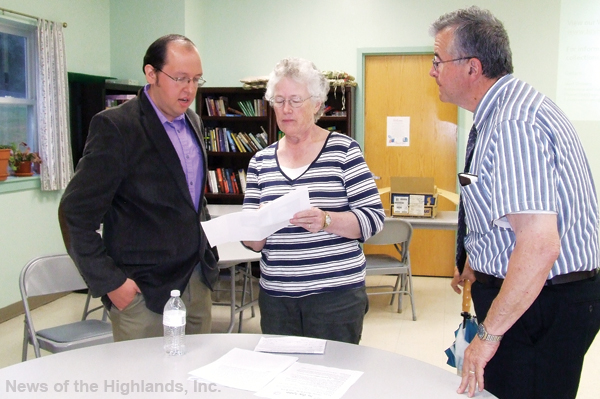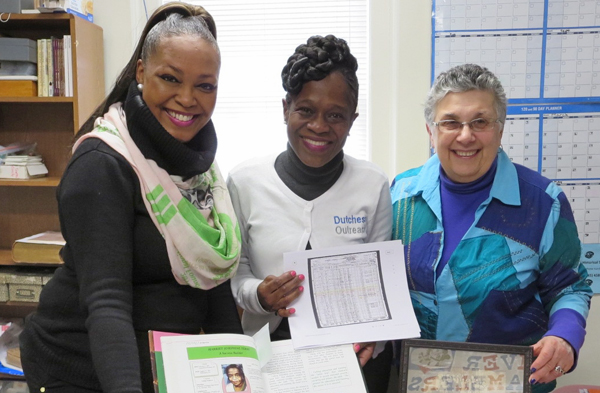
The Cornwall Historical Society had a special interest in its guest speaker on Monday night, June 25. For years, the society has tried to document Cornwall’s involvement in America’s wars. It hasn’t been easy. Veterans are often reluctant to speak about their time in the military.
But Matthew Thorenz, who spoke to the society at Munger Cottage, had a different experience. As the Reference and Adult Services Librarian at Moffatt Library in Washingtonville, he inherited a windfall.
In 2002, the library received the World War I correspondence of David Wright Hudson, a Washingtonville farmer who was a mess sergeant in France from 1917 to 1919. There were 100 letters in the collection — 50 that he wrote and 50 that he received from family members.
The library received the correspondence in a shoe box, and had the foresight to place the letters in a vault before the building was flooded by Hurricane Irene.
The letters reflect a different era in Orange County. When the United States entered the war, Washingtonville was a farming community with less than 700 residents. Its main thoroughfare wasn’t paved.
On the outskirts of the village, there was an army encampment near the Moodna Viaduct. Mr. Hudson, however, received most of his training at Fort Slocum (an island base in the Long Island Sound), where the daily influx of new soldiers was greater than the population of his home town.
He had to pay for his inoculations, and told his family there were so many shots “we probably have the healthiest soldiers in the world.”
The Americans, Sgt. Hudson included, received advice from a British sergeant before going into battle. He told them that in the trenches there was no cursing, no smoking, and no talking. While in combat, the men got their first look at fighter planes and anti-aircraft guns.
At the end of the war, Sgt. Hudson’s unit remained in England for another year. The Washingtonville resident, who had never attended school, now enjoyed college level courses in agriculture.
During the war, three people from his home town were killed. “They did not die in vain,” Sgt. Hudson wrote to his father; “neither did we fight in vain.”
The World War I vet returned to Washingtonville, where he lived until his death in 1971. “He hated being late for church,” Mr. Thorenz told the audience, “and he never talked about the war.”



